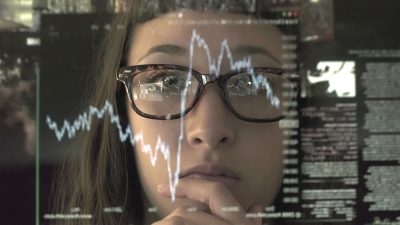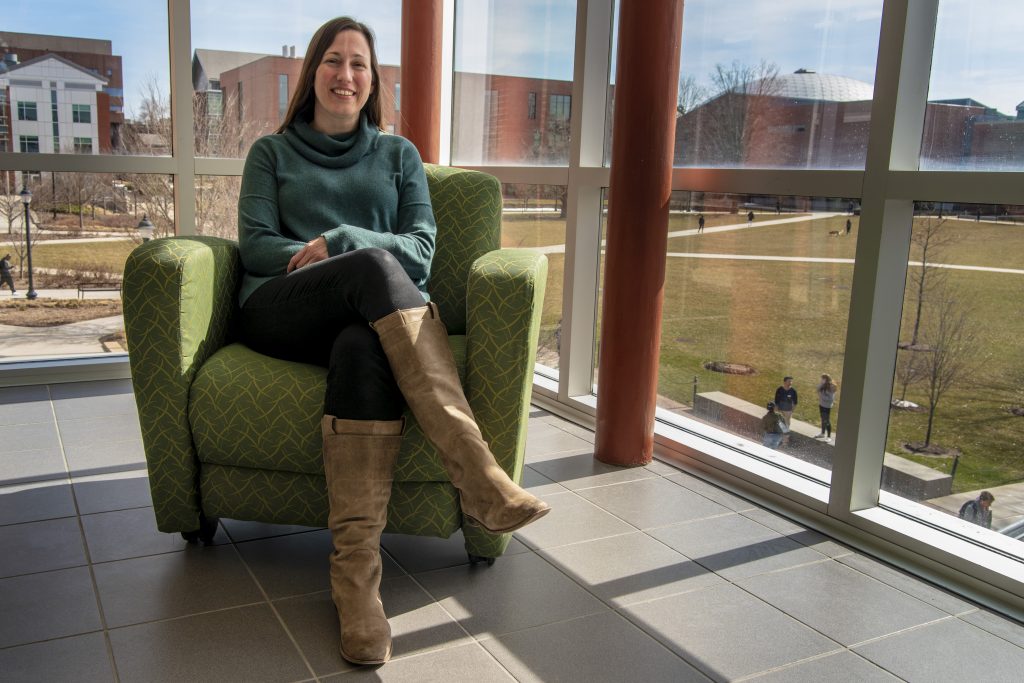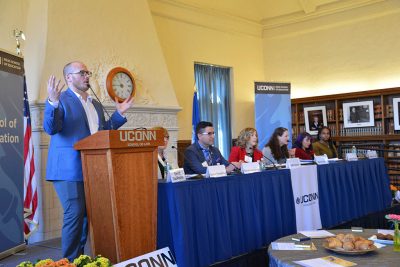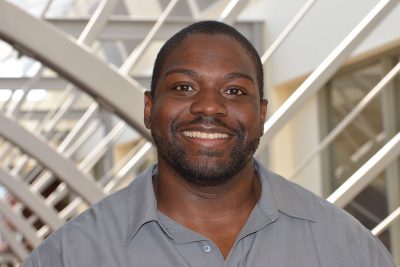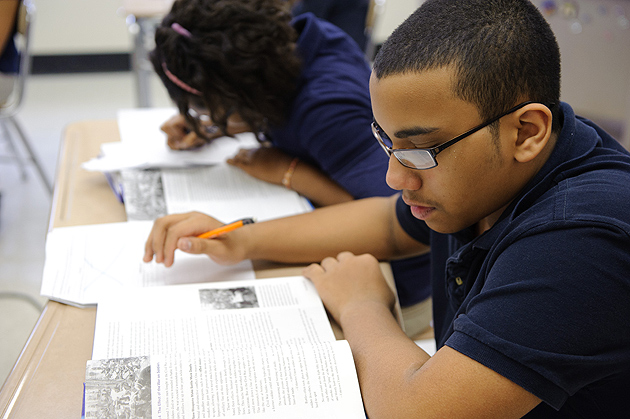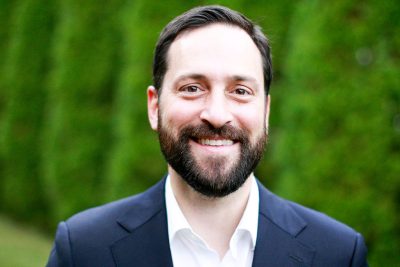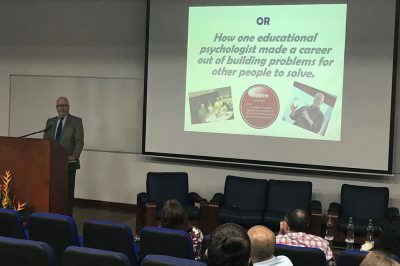Educational Psychology
Neag School Launches Its First Fully Online Master’s Degree Program
Beginning this fall, those interested in pursuing a master’s degree in research methods, measurement, and evaluation (RMME) within the Neag School’s educational psychology department will have the choice to study either in person at the UConn Storrs campus — or from anywhere in the world. The new fully online program is the first of its kind at the Neag School.
September 16, 2019 | Fiona Brady
UConn Expert Discusses Restraint and Seclusion in Public Schools
Educational psychology professor Brandi Simonsen, an expert on behavioral issues in schools, discusses the use of seclusion and restraint and alternatives to their use.
April 4, 2019 | Jaclyn Severance
10 Questions With Ph.D. Student Emily Tarconish, Brain Injury Survivor
Emily Tarconish is a Ph.D. candidate in Neag School’s educational psychology program with a concentration in special education. She is a survivor of a traumatic brain injury (TBI) she endured at the age of 15. With years of hard work and rehabilitation, Tarconish has relearned how to walk, speak, and regain basic life functions. Once she completes her Ph.D., she plans to pursue research focused in part on improving access to higher education for college students with TBIs.
January 8, 2019 | Shawn Kornegay
Op-ed: Rethink Peer Tutoring by Gifted Learners
Catherine Little of UConn's Neag School of Education says the 'help so-and-so' strategy to keep gifted students busy in the classroom often has limited benefit to the peer tutors.
August 6, 2018 | Catherine Little, Department of Educational Psychology
Klebanoff Institute, Neag School Co-Host 2018 Special Education Summit
The Neag School of Education hosted more than 150 special education directors, special education advocates, service providers, attorneys, parents, teachers, and school administrators from across the state this past week for its second annual Special Education in Connecticut Summit.
April 30, 2018 | Stefanie Dion Jones
10 Questions With Counseling Professor Clewiston D. Challenger
A former UConn student-athlete, Clewiston Challenger ’03 (CLAS), ’08 MA now serves as assistant professor of counseling in the Neag School. This latest installment of “10 Questions” connects with Challenger on his experiences as a UConn undergrad, his current research, and his aspirations for the students he now teaches in the counseling program.
March 27, 2018 | Danielle Faipler
Students in Poverty Less Likely to be Identified as Gifted
The fact that high-potential students in poverty are less likely to be recognized and served in programs for the gifted may increase, rather than decrease, social inequities, according to a new UConn study.
February 20, 2018 | Kenneth Best
Wearable Technologies Help Olympians Achieve Top Performance
Jaci VanHeest, Neag School associate professor of education, writes this piece originally published for The Conversation.
February 14, 2018 | Jaci VanHeest
Using Student Data to Predict and Prevent High School Dropouts
Each year, more than half a million students drop out of high school in the United States. But what if schools could predict which individuals were most at risk for dropping out — and perhaps even take action to prevent such an outcome? As it turns out, such a scenario is closer than ever to becoming a reality.
February 2, 2018 | Stefanie Dion Jones
Scott Brown Provides Training in Colombia as Fulbright Specialist
Since 2001, the Fulbright Specialist Program has been pairing a selection of top U.S. faculty experts and other professionals from a variety of disciplines with foreign host institutions for anywhere between two and six weeks to serve as consultants — sharing their knowledge and skills, and taking part in activities that support the host institution’s priorities and goals — while being immersed in other cultures. Board of Trustees Distinguished Professor of Educational Psychology Scott Brown, who is certified as a Fulbright Specialist, accepted an assignment that sent him this past month to Pontificia Universidad Javeriana (Pontifical Xavierian University) in Cali, Colombia.
December 1, 2017 | Stefanie Dion Jones
